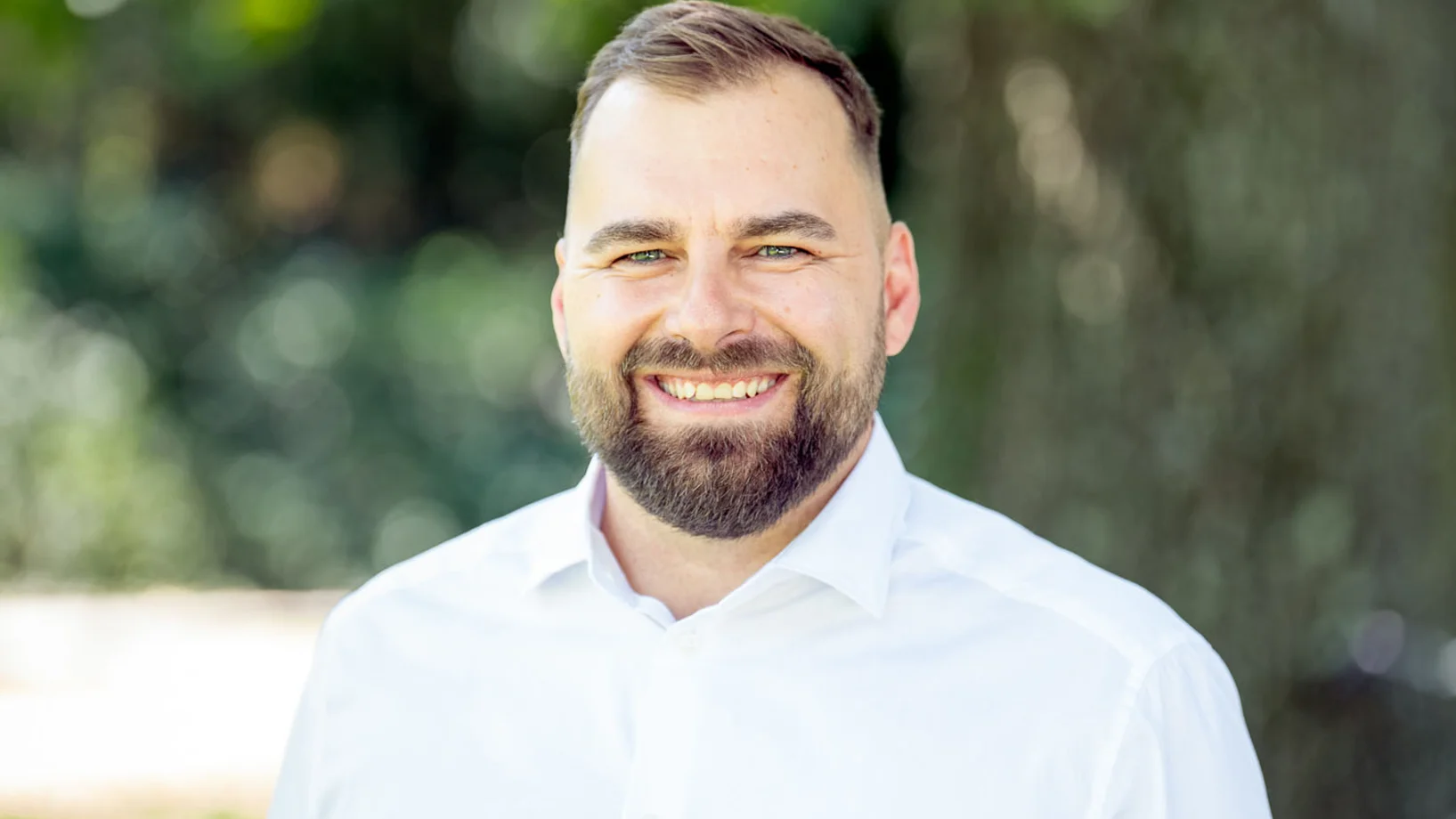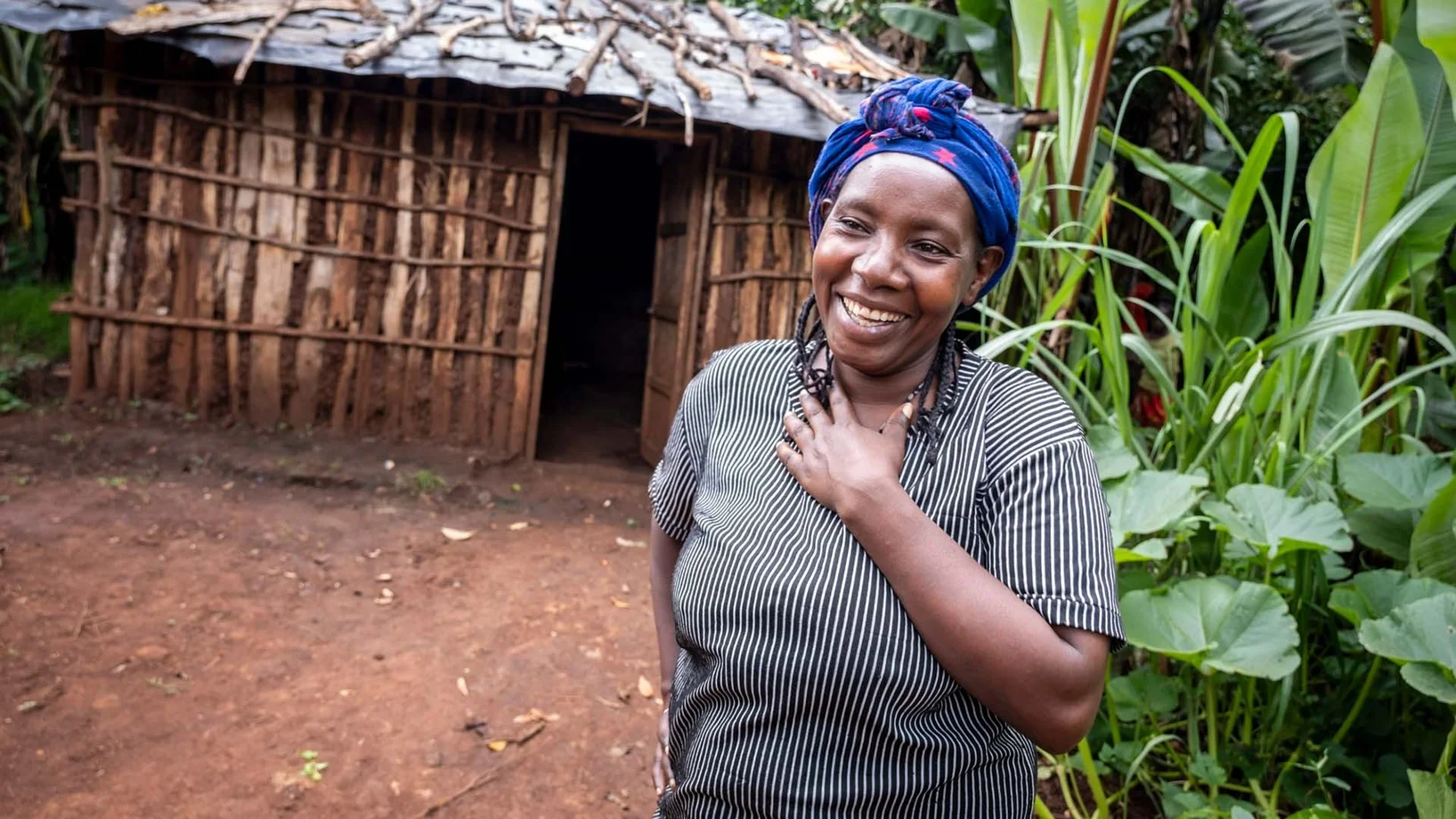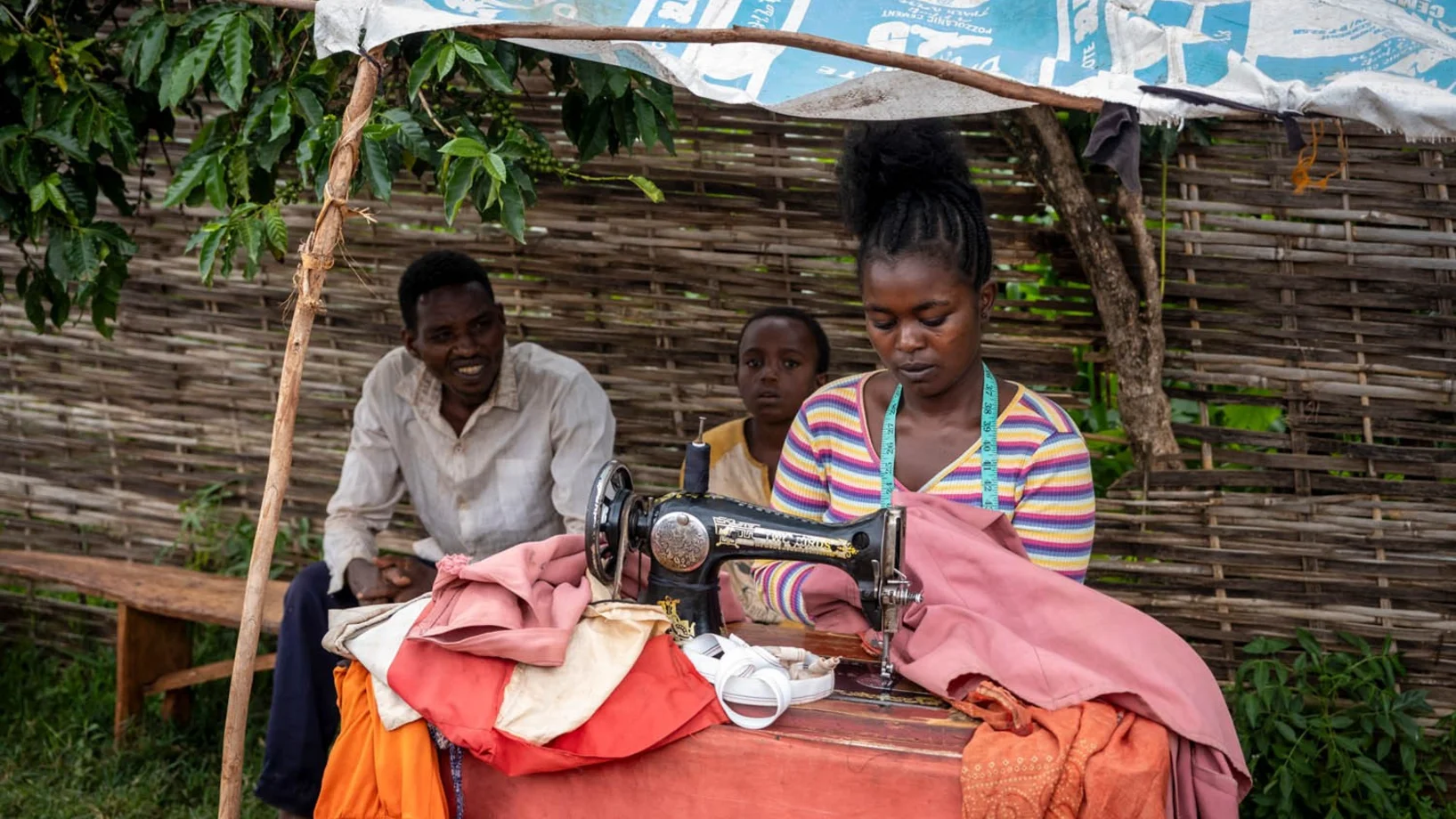Zurich / Fogera, March 21, 2024 – Trying something new is a risk for farmers: the results are only visible after many months, when the harvest is ready. Change requires courage – especially when living conditions are becoming increasingly precarious and many families are starving: This is the situation in rural Ethiopia. The Swiss aid organization Menschen für Menschen is trying to help – with young local experts as "agents of change".
Many small farmers in the Ethiopian district of Fogera harvest far too little. Their families only have enough to eat for a few months of the year. Hunger makes children susceptible to disease. Underdeveloped agriculture is just one reason for the shortage: people have cut down the forests out of necessity. Global climate change increases rainfall. The result is the erosion of topsoil. In addition, the fields are getting smaller and smaller due to real division. When the old die, the young divide up the inheritance. With each generation, the land per family becomes even smaller. Now each family has an average of just 0.3 to 0.4 hectares of land at its disposal. That is half the size of a football pitch. No one can feed themselves on that - at least not with the traditional way of farming.
That's why Menschen für Menschen helps. The families receive a variety of incentives to increase their income. This includes material assistance such as tree seedlings or high-yield seeds, which they receive on the basis of microcredits. But even more important is the dissemination of knowledge and new methods. Young agricultural advisors who live in the villages go from farm to farm every day and encourage people to introduce innovations.
One of the consultants is Endashaw Alemu, 29. His first appointment today is with Asenakew Mekonen, 55, who greets the guest with a warm handshake. "Endashaw showed us new cultivation methods," reports the small farmer. Until now, Asenakew planted teff, Ethiopia's traditional grain, like his ancestors: lean oxen scratched up the soil with a simple hook plough. Then he threw the grain over the field by hand. Large parts of the seed dried out or were eaten by birds. The harvest remained poor. "But now I make furrows in the ground, 20 centimeters apart," explains Asenakew. "I fill a small plastic bottle with the seeds." Teff is also called dwarf millet: the seeds are tiny, barely a millimeter in size. "Then I burn a hole in the lid with a hot needle," the farmer continues. If you now move the bottle along the furrow with the lid down, the seeds trickle out – not too much, not too little.
It also helps that Asenakew received improved seeds and mineral fertilizers from Menschen für Menschen. "This allows the families to double their harvest," says consultant Endashaw. "I was initially skeptical about Endashaw's suggestions," says farmer Asenakew. "But he came every day and eventually I gained trust."
Microcredits instead of usurious interest rates
He has no regrets about the new ideas, just like farmer Tegegne Kebede, 42. His house is Endashaw's next stop today. The farmer shows him his compost, which he created three months ago, with tree leaves, bean straw and cow dung. Menschen für Menschen provided the hard-working helpers: packs of moist soil containing hundreds of earthworms. Tegegne can make good use of the compost: he uses it primarily in the planting holes for the mango seedlings that he receives from Menschen für Menschen .
"But the most important thing for me was that I got maize seed on a loan," explains Tegegne. The farmers pay these microloans for seeds back to a cooperative, which uses the repayments to issue new loans. "Without this opportunity, I would have had to borrow money privately." The interest rates charged by local lenders are horrendous and are a major reason why the families are trapped in poverty: "After the harvest, I would have had to pay back twice the amount!"
The consultant then goes on to the farm of Mulu Tadesse, 54. He too used to have to take out usurious loans in order to be able to buy food in the months before the next harvest, when all supplies were used up. "That's over since we got the sheep," says the farmer: Menschen für Menschen also sells small livestock on a microcredit basis. Endashaw gave advice on how to treat the ewes so that they give the lambs enough milk: "It's common practice to just let the sheep run around, which causes them to lose a lot of energy. It's better to keep them on the farm and give them rich food."
Education is the path to development
By selling the young sheep, they can not only buy food and mineral fertilizers, says the farmer, but also school supplies for their three children. Another innovation is very important for his wife: "I used to cook on an open fire," says Wolela Agmas, 42. "My eyes would water for hours, the smoke was so deadly. And the flames burned my legs." Endashaw convinced her of the advantages of a simple stove made from a handful of concrete elements. "We now need much less cow dung and wood for fuel," says the farmer. The dung can now also be used for compost. Less wood has to be felled and collected, which is traditionally the work of girls: now they have more time for school.
A total of eight agricultural advisors from Menschen für Menschen live among the farmers of Fogera. Together they plant around 2.2 million trees to restore natural resources. Some families have more children than they want and can feed. Part of the knowledge imparted by the advisors is therefore family planning.
Endashaw has experienced for himself that education is the path to development: "I know what poverty feels like." He also comes from a family of small farmers. His older brothers had to help with farming at an early age and give up school. But he was allowed to get an apprenticeship. He recognizes his younger self in Hailemikael, the son of farmer Asenakew Mekonen. The eleven-year-old is the best student in his class of 54 students. The boy has big dreams. "I want to become Prime Minister of Ethiopia one day," says Hailemikael and smiles. "Then I will develop the country - and everyone will have enough to live on."
Über die Stiftung Menschen für Menschen
Menschen für Menschen setzt sich gegen Armut und Hunger ein. Die Stiftung wurde von dem Schauspieler Karlheinz Böhm (1928 – 2014) gegründet. Im Geiste des Gründers schafft das Schweizer Hilfswerk Lebensperspektiven für die ärmsten Familien in Äthiopien. Ziel der Arbeit ist es, dass sie in ihrer Heimat menschenwürdig leben können. Schwerpunkte der einzelnen Projekte sind Frauenförderung, Berufsbildung, Mikrokredite, Kinderhilfe, Familienplanung und landwirtschaftliche Entwicklung. Die Komponenten werden nach den lokalen Bedürfnissen kombiniert und mit sorgfältig ausgewählten einheimischen Partnern umgesetzt.
Download the image in HD quality and the media release (in German) as PDF here:





